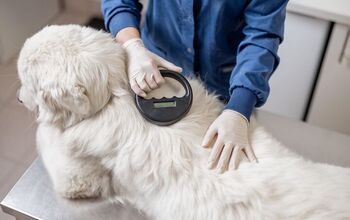California’s New Law Bans Pet Stores From Selling Non-Rescue Pets

The mantra of ‘adopt, don’t shop,’ will take on something new this year in California, as The Pet Rescue and Adoption Act signed in 2017 took effect with the start of 2019. The law means prohibits pet stores from selling dogs unless they are from shelters or non-profit rescue groups.
Related: Lucy’s Law Confirmed In England, Bans Pet Stores From Selling Puppies or Kittens
Individuals can still buy from private breeders though. Assemblymember Patrick O’Donnell introduced the act and said that the law was meant to put an end to puppy mills and kitten factories, not to put credible breeders out of business. California is the first state in the country to enact such legislation, but other states have showings that they’re looking to follow.
With the law, store owners and operators will be required to provide records of where the animals they sell come from or they’ll face a $500 per animal penalty.
O’Donnell said that not only is the law a win for four-legged friends, but for the taxpayers of California. According to O’Donnell, Californians spend over $250 million annually to shelter and then eventually euthanize homeless and/or stray dogs. This act will work toward finding those dogs homes, as well as preventing puppy mills and kitten factories from overpopulating the state.
Related: Maryland Legislature Prohibits Pet Stores Selling ‘Puppy Mill’ Pets
The act doesn’t just apply to dogs or cats but to rabbits as well, and specifies that pet stores can sell them from the following places: a public animal control agency or shelter, the humane society shelter, a rescue group that is working with an animal shelter or the society for the prevention of cruelty to animals shelter.
Additionally, each pet store has to have records that will document where the animals came from for at least a year and to post that information where the animal is kept before sale. The stores will also give the public animal control agencies and shelters that information on a periodic basis as needed or requested to ensure compliance with the law.

More by Lori Ennis























